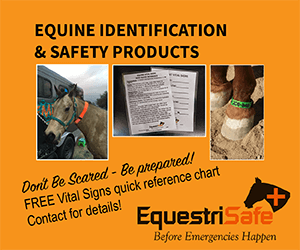Washington State Fish and Wildlife, State Parks and Dept. of Natural Resources are opening their lands on May 5th for DAY USE ONLY. But what does it really boil down to.
Reopening state lands is proving to be a complicated process and will require all of us to recreate responsibly if we want to keep making progress back to full access including camping and larger groups. All of that will depend on numbers – numbers of cases of covid19 decreasing and numbers of people crowding recreation sights. The stay at home order has not been lifted, so finding trails and riding areas that are local is optimum.
Before you go
- Check what’s open. While many state-managed land destinations are open for day-use, other local, tribal, and federal land may still be closed.
- Opt for day trips close to home. Overnight stays are not permitted. [[No Campng, no dispersed camping will be allowed on state lands at this time.]]
- Stay with immediate household members only. Recreation with those outside of your household creates new avenues for virus transmission..[[ Group events are not permitted at this time.]].
- Come prepared. Visitors may find reduced or limited restroom services as staff begin the process to reopen facilities. You are advised to bring your own soap, water, hand sanitizer, and toilet paper, as well as a mask or bandana to cover your nose and mouth. [[ Agency staff will be working hard to completemaintenance tasks that they have been unable to do because of the shutdown ]]
- Enjoy the outdoors when healthy. If you have symptoms of fever, coughing, or shortness of breath, save your outdoor adventure for another day.
When you get there
- Avoid crowds. Be prepared to go somewhere else or come back another time if your destination looks crowded. [[ Have a plan A and plan B, if you arrive at a destination that seems crowded opt to go elswhere ]]
- Practice physical distancing. Keep six feet between you and those outside your immediate household. Leave at least one parking space between your vehicle and the vehicle next to you. Trailer in the same way.
- Wash your hands often. Keep up on personal hygiene and bring your own water, soap, and hand sanitizer with you.
- Pack out what you pack in. Take any garbage with you, including disposable gloves and masks.
Messaging is being prepared by a group consisting of WDFW, DNR and State Parks, along with representatives from 20 user groups in the hope of spreading consistent information. Each and every agency and user group will be building messages to share, with the public. What I want is for people to have enough information to make choices that won’t lead to situations where the agencies feel that they need to re-close sites. [[ I added a couple of notes]].
So what does this mean for BCHW? I hope it means that we will recreate responsibly, continuing to do our part to keep covid19 case numbers on the decline.
In a call tonight April 29, WDFW talked about ” hot spots” where they expect they may see overcrowding. It was not surprising that Shed hunting areas were specifically called out as hot spots.. I know that we always look forward to the shed hunt opportunity, but for this season you may want to reconsider. We are a relatively small user group, but we have a big, big presence. I would hate to be the group on the front page of a newspaper and be called out for overcrowding a site.
If you know me well, I’ve told you that I don’t have many dreams, I just sleep. But after working with agencies on this messaging in the last few days I had a nightmare of vastly overcrowded sites and way too many people followed by the threat of re-closure. Some of my colleagues at the other rec. organizations are reporting the same thoughts. I have my fingers crossed that we can move through this by adopting the “Responsible Recreation” mantra, by thinking in the long term and by providing good examples of how to get back out into the woods safely. “Safely” sure has taken on a whole new meaning.
Thanks for reading this through, and thanks for your consideration as we navigate back to fully open public lands.

Back Country Horsemen of Washington (BCHW), is a 501 (c) (3) organization with 32 chapters across the state dedicated to: keeping trails open for all users; educating horse users in Leave-No-Trace practices; and providing volunteer service to resource agencies.





